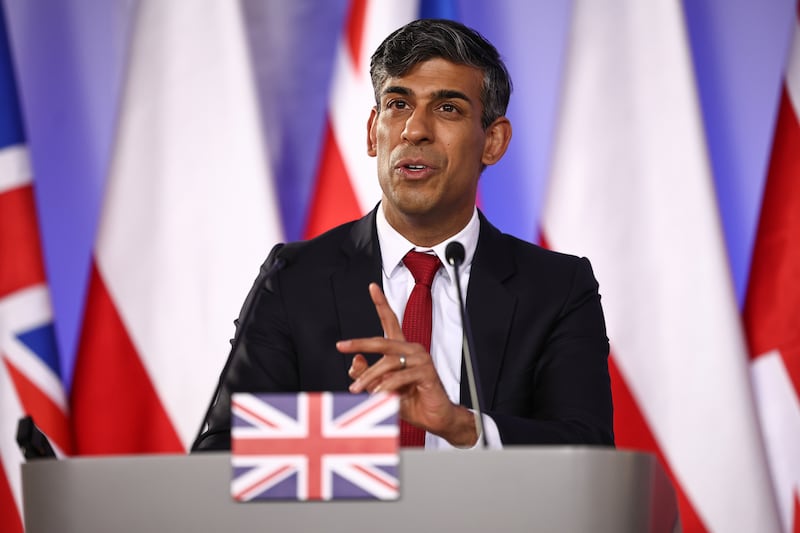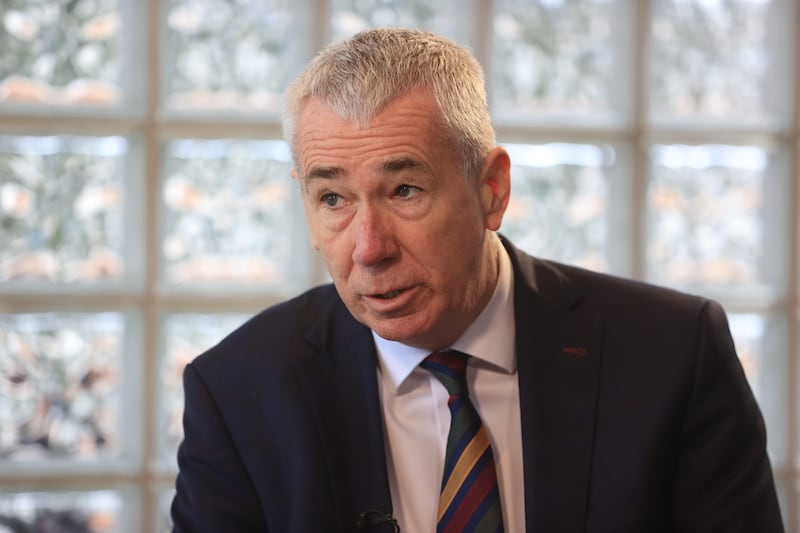AFTER DICK Dastardly, Cruella de Vil and host of Tory MPs declined the job of secretary of state, Liz Truss eventually opted for Chris Heaton-Harris, an appointee who on paper looks like a DUP dream ticket – but then Boris Johnson was similarly lauded and we know how that ended.
There's a familiar pattern in recent years of DUP hubris being followed a painful reality check. The mess we are in at the minute is the result of a series of awkward pas de deux, motivated by an expedient desire to save their respective political skins. The more the Tories and DUP together try to demonstrate their patriotism, the greater the shambles.
With little else happening, the level of media attention dedicated to the appointment of a new secretary of state has been somewhat disproportionate. In some quarters, the role is elevated to that of a proper cabinet minister who makes decisions that actually affect people's lives, when in reality the Northern Ireland secretary is little more than the symbolic figurehead of an over-sized, offshore department, led by someone who is as irrelevant in London and they are in the region they oversee.
Not since the early days of the Blair administration, when the secretary of state's job description included brokering peace between literally warring factions, has the role been filled by a political heavyweight. The past 12 years under the Tories has seen the appointment of some especially lacklustre and uninspiring individuals. Beginning with the since discredited Owen Paterson, the quality of candidates has progressively descended, each arguably more bland and anonymous than their predecessor. Julian Smith, is singled out as the exception. More personable and less detached than his counterparts, the Scottish-born, comprehensive-educated, former Conservative chief whip had the advantage of being in the right place at the right time, when an electorally bruised DUP and Sinn Féin would've taken his hand off to get back into government. A series of tweets with more than a hint of sour grapes notwithstanding, there's little to suggest he's not cut from the same cloth as Villiers, Brady, Lewis, et al.
Mr Heaton-Harris is, like those who came before him, largely an unknown quantity on this side of the Irish Sea. He did visit the north in January, under the radar, and managed to leave with the distinct impression that nobody likes the protocol. Simon Coveney and Jim Allister have both had previous dealings with the MP for Daventry, who like the foreign affairs minister and TUV leader, was once an MEP. His role as former chair of European Research Group speaks volumes about his ideological allegiances and ostensibly this should would give reassurance to those who wish to destroy the 'iniquitous' protocol. A glance around the cabinet table at his colleagues, however, will reveal a motley collection of MPs who in the past have voiced support for a particular cause only to abandon it in the name of pragmatism – none more so than the new prime minister herself.
Mr Allister was uncharacteristically upbeat about the appointment of the new secretary of state, tweeting that they had been together "on the same side in eurosceptic battles in Brussels". But like past endorsements from unionists, that may prove the kiss of death. Ever the diplomat, the Fine Gael deputy leader's response to Tuesday evening's appointment was measured and indicated a desire not to further damage already strained Anglo-Irish relations.
Both Mr Coveney and Mr Heaton-Harris have prioritised a return of the Stormont executive, blocked since February by the DUP's boycott. The new secretary of state said yesterday he would "work with all of the parties" to get devolution up and running but that the protocol needed to be fixed as it had "damaged the balance between the communities". No new thinking there it would appear but the coming weeks will be the most telling.
As suggested above, the secretary of state has limited sway and limited powers but one thing that is in his gift is calling an election once the deadline for restoring the institutions passes in late October. That will be the real test of the new secretary of state's mettle and a chance for him to prove he's not just like the rest.






